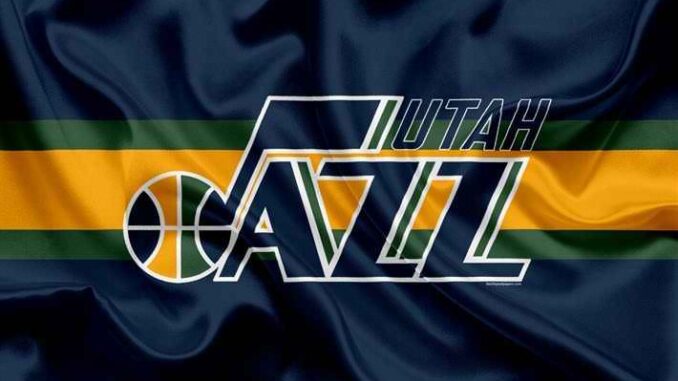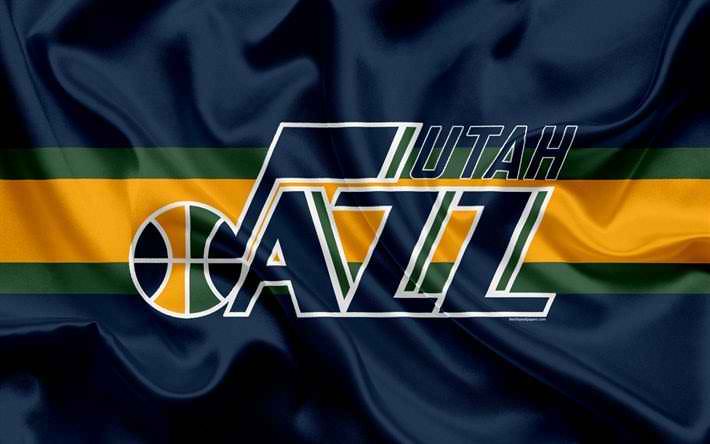
Mark Eaton, the shot-blocking master and Jazz legend, has died at the age of 64.
Eaton, one of the best shot-blockers in NBA history, was selected Defensive Player of the Year twice during his 11-year career, both times with the Utah Jazz.
Mark Eaton, the 7-foot-4 shot-blocking master who was named NBA defensive player of the year twice throughout his entire career with the Utah Jazz, has died. He was 64.
His death was revealed by the team on Saturday.
Eaton left his home for a bike ride Friday night in Summit County, Utah, and shortly after, someone called 911 to report seeing him unconscious on the side of the road. Eaton was rushed to the hospital and died there.
According to the team, who cited county officials who investigated the incident, “there is no reason to believe a vehicle was involved in the incident.”
We are heartbroken by the passing of Utah Jazz legend Mark Eaton.
Our thoughts are with his family as we all mourn the loss of a great man, mentor, athlete and staple of the community. pic.twitter.com/HkINyLF9ix
— Utah Jazz (@utahjazz) May 29, 2021
In a statement, the Jazz called him a “enduring figure in our franchise history” who had a “significant impact in the community after his basketball career.”
Utah coach Quin Snyder stated before Game 3 in Memphis on Saturday night that the team’s thoughts and prayers are with Eaton’s wife.
“Mark was someone that was a friend, and I think a friend who a lot of us, in his relationship with Rudy Gobert I think is emblematic of who he was and his ability to listen,” Snyder went on to say. “And then to offer counsel and support was something that was really unique, and obviously we’ll miss him.”
The centre led the league in blocks per game four times, and his 1984-85 average of 5.6 per game remains the highest since the NBA began officially measuring that statistic.
Eaton’s career blocks average of 3.51 per game is the best in NBA history, and his career happened almost by accident. He was working as an auto mechanic in 1977 when a community college basketball coach persuaded him to enroll. From there, he went to UCLA, and his stint with the Jazz followed.

“I had an unusual background,” Eaton remarked in an article published two years ago on the Jazz website. “To be sure, it’s an implausible story. I basically came into the NBA with two years of junior college experience and two years of bench time at UCLA. And Frank Layden gave me an opportunity, and the team was in a position where they could afford to let me make some mistakes and get my feet under me out there. It was a win-win situation for both of us.”
In his retirement, Eaton worked as a restaurant and motivational speaker, among other things. In recent years, he has served as a mentor to Utah centre Rudy Gobert, the only other Jazz player to earn defensive player of the year.
“He was so impressive,” said former NBA broadcaster Mike Inglis, who is now the Miami Heat’s radio voice. “I used to refer to him as the human condominium complex.” Let me tell you, he was something else on defence.”
Eaton’s death came days after he was in Chicago to be part of the celebration for his friend Joe West, who broke baseball’s umpiring record by working his 5,376th regular-season game Tuesday night.
His 11 playing seasons with the Jazz are third most in team history, behind longtime Utah cornerstones Karl Malone and John Stockton. His durability was noteworthy, with him once appearing in 338 consecutive games. He finished with career averages of 6.0 points and 7.9 rebounds.
But his best skill was defending the rim, and once told a story about how Wilt Chamberlain offered him advice about his career. He incorporate the tale into a motivational speech, telling others that Rule No. 1 for success is to “know your job.”
“Wilt grabbed my arm and dragged me out onto the floor, right in front of the basket.” ‘Do you notice this basket?’ he asked. It’s your job to keep players from getting there. ‘Your objective is to make them miss their shot, get the rebound, toss it up to the guard, and let them run down the other end and score,’ Eaton explained.
“When Wilt told me that, everything changed. “I knew what I had to do,” Eaton said. “I realised what I could excel at. Wilt demonstrated my role and how my actions benefited my team.”
Eaton was also an officer in the National Basketball Players Association, which said in a statement Saturday that he would be missed.

“It may be cliched, but it’s true: Mark Eaton was a giant, in every sense of the word,” declared the NBPA. “Mark served his colleagues with grace and strength as a long-time member of the NBPA Executive Committee right up until his retirement from the league in 1994, and he continued to watch over them through his service for the Retired Players Association.” His commanding physical presence complemented his friendly and caring demeanour.”
Eaton’s No. 53 was one of the first Jazz jerseys to be retired. He was the defensive player of the year in 1984-85 and 1988-89, a five-time All-Defensive team selection (three first-team, two second-team), and an All-Star in 1989.
Phoenix selected him with the 107th overall pick in the 1979 draught, and Utah selected him again with the 72nd overall pick in 1982. And he never left; his final game was in 1993, but back troubles forced him to retire in September 1994.
“It’s been a great ride, but life has a way of moving on, and I must move on with it,” Eaton said in a post for The Salt Lake Tribune announcing his retirement. “I appreciate you allowing me to be a part of your life and community. I’ll be there.”
Eaton kept his word and remained a Utah fixture for the rest of his life.

Leave a Reply